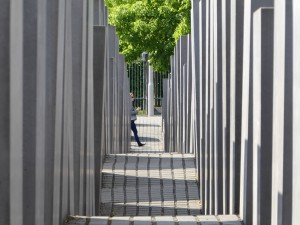 When I traveled recently in Germany on holiday, it was at the end of the #rhizo15 experience, when we were challenged en masse to reconsider learning objectives and even course (learning) content itself. While the formal period of this is now behind us, I find I need some form of closure (even for a course that does not, really, have an actual end). I have been trying to formulate what I learned in the #rhizo15 “course” for some time, and I realize I just need to write about it and see how it resonates.
When I traveled recently in Germany on holiday, it was at the end of the #rhizo15 experience, when we were challenged en masse to reconsider learning objectives and even course (learning) content itself. While the formal period of this is now behind us, I find I need some form of closure (even for a course that does not, really, have an actual end). I have been trying to formulate what I learned in the #rhizo15 “course” for some time, and I realize I just need to write about it and see how it resonates.
Rhizomatic learning in the #rhizo15 experience covered roughly 6 weeks, and perhaps fittingly, 6 topics as I see them:
- How do we design learning subjectives when we go to unknown places?
- How can we measuring this learning?
- What does this all mean for content?
- How can we teach without a teacher?
- How does all this happen within a community?
- How do we now go and do this?
Way back when, I started to teach in the same way that I learned. I think this may be common.
While I am in the learning business (so to speak), I find that the more I learn and experience, the more I still teach in ways I learned. The difference is that I am continuously learning about learning, experiencing about experiencing, and trying to make sense of the places where people struggle most and thus the places where they have the most to learn. This is not just historical; what I learn now influences what I teach tomorrow.
My main take-away in the open learning, networked / connected experience that was #rhizo15 is that our continuous layers of reality — based on our learning + experiences+ context + beliefs — are often what is real to us. However, my reality may not be your reality, though when we speak and interact with others, we usually do not have time or the wherewithal to have these background conversations, and as a result we commonly experience My Reality as THE Reality. This may not be intentional, but many who do not focus on these issues do not stop to consider the subtle distinction.
This has enormous implications for how I teach, my expectations, my wants, desires, and beliefs (not to mention the examples I use in my work to illustrate what I am trying to get across). Have you ever made a political, religious, business, social, or cultural reference to illustrate a point, only to have it backfire when we learn simple references are not always simple?
This came home to me when I was organizing my images from my trip. I experienced powerful emotions and thoughts when I visited The Memorial to the Murdered Jews of Europe — everything for who was remembered, what was remembered, what power remembering has, and what it may or may not mean for the future. Located in Berlin next to the US Embassy and across from the Brandenburg Gate, the memorial slopes down, and the seemingly numberless paths and blocks of different height hide and present others across different distances, bringing sight and what is hidden into a dance. I could see clearly, until my path suddenly blocked anything other than in front of me. Two feet later, I could suddenly see in more directions, again, though only for a moment. My reality grew and shrank in an instant.
When I walked through this memorial, I had not made the connection between it and #rhizo15, though in many ways learning is really like this. We constantly experience and make sense of our experiences, often while trying to communicate them with others. The key, and this is my take-away, is that only through interacting with others along the way, with all their own perspectives, can we better see how our realities are different. It is through this difference, and how we consider it, and what we then do with it, that we can help reach and guide or challenge those who we work with when tasked with creating and facilitating learning. We never know when our ideas will come into and out of sight, and also do not know when even better ideas may also come into view.
Walking through the memorial, thinking about the history it recalled, my experiences at the time, and what it all may mean for us tomorrow–this is what #rhizo15 was all about. Learning is not as organized as we like to pretend, as we never know how all those layers of reality really come together, for a short time, while we try to do something all with it.
@JeffreyKeefer You might like this poem: constitution.org/col/blind_men.… #rhizo15
My learning take-away from #rhizo15: When My Reality Is THE Reality… http://t.co/jSRUObzXvF http://t.co/DpaiE5EWXP
#SGM15 What influences *your* teaching ? When My Reality Is THE Reality http://t.co/xD8HF8xSlK via @JeffreyKeefer
RT @Danceswithcloud: #SGM15 What influences *your* teaching ? When My Reality Is THE Reality http://t.co/xD8HF8xSlK via @JeffreyKeefer
@NomadWarMachine @OnlineCrsLady @grammasheri @jgmac1106 While still making sense of #rhizo15 I tried my learning http://t.co/jSRUObzXvF
RT @JeffreyKeefer: @NomadWarMachine @OnlineCrsLady @grammasheri @jgmac1106 While still making sense of #rhizo15 I tried my learning http://…
RT @JeffreyKeefer: @NomadWarMachine @OnlineCrsLady @grammasheri @jgmac1106 While still making sense of #rhizo15 I tried my learning http://…